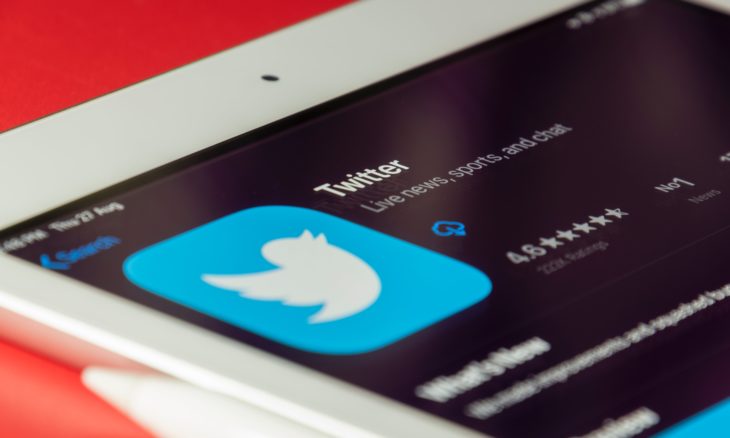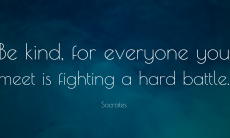In a recent announcement that mattered to almost no one, Twitter let the world know that it’s shutting down Fleets – its full-screen tweets that expire after 24 hours a la Snapchat. The announcement was almost humorous and overly blunt in nature.

To be 100 percent transparent, I never used Fleets. Not once. And I don’t care that it’s going away. However, the abrupt and very quick axing of Fleets just eight months after its release leads me to raise two bigger industry-wide questions:
Why do social media platforms feel they have to copy each other?
When will posting fatigue overrun the benefits of posting for users?
Let’s dive in…
Why do social media platforms feel they have to copy each other?
In recent years, the monkey-see, monkey-do nature of social media has been driving me bonkers. Yes, Clubhouse blew the *bleep* up during the quarantine. Yes, people loved the audio-only format. But why – why, oh why – did Twitter and LinkedIn and everyone else feel the need to build out an audio-only feature? They all tried to capture the Clubhouse lightning in a bottle, but no one told them that the lightning struck a year ago. This isn’t “Back to the Future.” We can’t predict where the lightning will strike, and no one is handing you a magic flyer with all the deets so you can go back and revisit the lightning.
There is a big difference between innovation on social media and copying stuff. Hashtags are a great example of true social media innovation. Hashtags are now prevalent on most social media platforms, but they started on Twitter as an organic movement by users to categorize and tag conversations. They were so effective and so popular (not to mention useful) that Twitter officially adopted them, and then other social platforms picked them up.
Unfortunately, true social media innovation is rare. And what we’ve been seeing lately is mostly copycat activity. Snapchat has posts that expire after 24 hours, so other platforms tried it (and in Twitter’s case, found it didn’t work). Stories became popular, so all the platforms rolled them out (I’m still not sure they belong on LinkedIn). Reels are popular on Instagram, so now we see other platforms adding Reels-esque editing features. And oh yeah – Reels was developed in the first place to imitate Tik Tok.
What happened to individuality for heaven’s sake? I feel like everyone’s mom – If Twitter jumped off a bridge, would you do it, too?
Besides me just whining about this, there are some real implications here.
-
Profits: It’s no secret that some social media platforms have struggled to actually make money. All of them except Facebook are still figuring out how to monetize what they do. Creating and launching new features is not cheap. There’s development time, man hours, marketing dollars, support resources, etc. Just throwing everything at the wall to see what sticks seems like a flawed (and expensive) strategy.
-
Integrations: The universe of social media and digital marketing is increasingly complex and increasingly interconnected. Each platform connects to other tools and platforms. Every time a major platform changes something, the connection changes. The social platforms may not care, but every time they roll out a major change, there’s a massive ripple effect of everyone having to update their own platforms, software or even things like training materials.
-
Analytics: The rampant explosion of new platforms and new features has made measuring ROI of social media really difficult. And it wasn’t easy in the first place! How do you create an integrated way to measure Stories views, Reels views, post engagement and other core metrics? Does one matter more than the other? How do you aggregate them into one cohesive picture? How do you know that one individual didn’t watch all the stuff and not count them five times? How do you answer the question, “What are we getting from all of this?” It is getting darn complicated to even define success on social media nowadays. Without being able to prove their ROI, corporate social media teams are going to have a hard time justifying their budgets, and the platforms could actually see ad revenue decline.
-
User fatigue: If users have chosen your platform from an increasing number of options, they like it for a reason. Making too many changes and rolling out too many features can actually alienate your core user base. People hate change.
And this leads me to important question No. 2: When will posting fatigue overrun the benefits of posting for users?
Think back to what social media was like five years ago. You probably had some combination of accounts on Facebook, Twitter, Instagram and LinkedIn. You posted work stuff on LinkedIn and some mix of personal stuff on the other three. Posting was as simple as typing in your text, attaching an asset or pasting in a link and clicking the button.
My, how things have changed. Posting today almost requires a PhD in “where to click.” You can add sound, stickers, filters, effects. You can edit the length of your video, add looping, tag your location, tag your friends, cross-post to other platforms and hashtag your brains out. You need landscape for Twitter, but vertical video works best on Facebook or Tik Tok, and you need a square for Instagram, of course. You could choose a Boomerang or a Layout, you can re-order your photos and create a custom frame. Click here to add to your story, click here to make a post, click here for Reels, or go to your profile and click in other places to do the same things. What used to be a simple process has now become unbelievably complex. This is one of the reasons corporate social media teams are stretched so thinly – every post requires a multitude of variations and tweaks per platform, per format, per everything. It’s just way more complicated and difficult than it used to be.
Here’s my warning at large for the industry: There WILL be a point at which users decide it is not worth their time or effort.
Just like web developers know that people will not click three or four different links to finally get to the page they want, social media users won’t post as often if they have to click 12 different things and spend 10 minutes per post. One of the things that originally drew people to social media back in the day was the ease of sharing things with your network. If you take that away, user numbers will definitely decline. It’s human nature.
Add in the privacy concerns, data breaches and other things that have users concerned about social media at large, and it’s truly just a matter of time before we start to see user numbers decline or stagnate. In fact, the latest data from the Pew Research Center seems to indicate it’s already happening.

So while you may not be mourning the passing of Fleets, there are some key takeaways for the social media industry at large from these sorts of announcements:
Your users should dictate new features. New features are fun, and true innovation within social media is great. But choose your new features wisely, develop them thoughtfully and make sure they are things your users actually want on your platform. Note my hashtags example above. Hashtags came directly from users, not executives – and they are arguably one of the greatest social media innovations of all time.
Stop with the FOMO. If you’re going to invest all the time and resources into developing new features, don’t simply copy your competition because you’re afraid of missing out on the next big thing. The social media business is so fragmented now with so many players that you are never going to own 100% of the pie. And to be honest, by the time you catch up, you just look like a copycat, and users are wise to that game.
Listen to your users. They will tell you what they want. If you check out the tweet announcing the end of fleets, dozens of users have chimed in asking Twitter (again) for an Edit button. Despite this being probably the No. 1 requested feature on Twitter, it’s crickets over at Twitter HQ.
Keep it simple, stupid. Don’t make posting so complicated that people need an instruction manual. Posting should be easy and fun, no matter who you are. If you can’t make it easy and fun, users will stop posting, and then no one wins.






